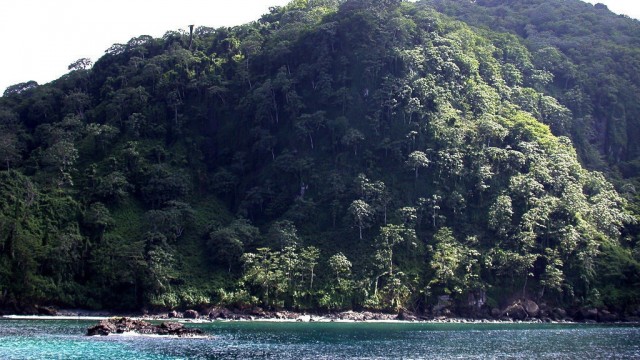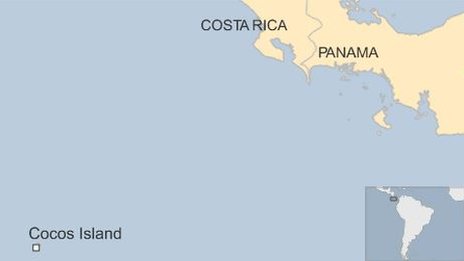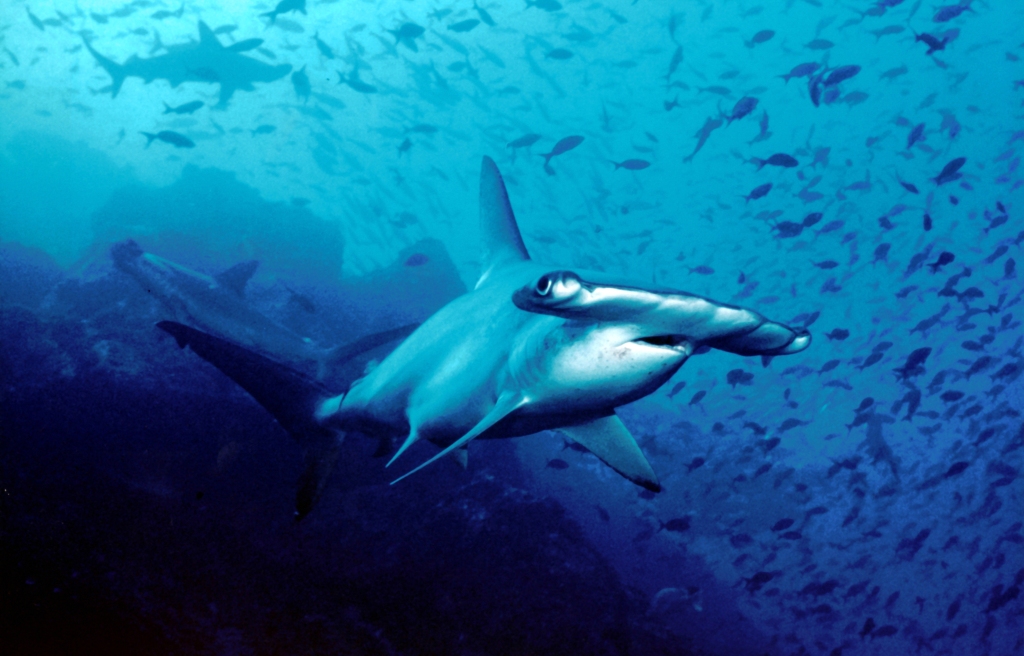Costa Rica News – The chase is on. The suspect is inside the no-fishing zone, drifting on the mirrored Pacific swell, apparently unconcerned as our patrol boat nears. Suddenly, he turns. He is making a run for it, his boat’s narrow funnel squirting an inky stain on the brilliant blue sky.
 We are clearly gaining on him as he tries to flee the shark-rich waters off the legendary Cocos Island – which boasts some of the finest marine life in the oceans.
We are clearly gaining on him as he tries to flee the shark-rich waters off the legendary Cocos Island – which boasts some of the finest marine life in the oceans.
The ranger warns me that if he keeps this speed for an hour his patrol boat’s engines will explode.
But clearly the fishing boat captain does not realise that. He accepts his fate and slows down. We catch him within minutes.
The rangers fear the worst – typically these confrontations are ugly; mothers are cursed and death threats issued; sometimes patrols get rammed.
Instead we witness a courteous exchange with the bare-bellied fishing captain adorned with a steel chain around his neck and a piratical bandana.
“Buenos dias senor,” calls Ranger Isaac Chinchilla from the rail of his boat’s prow. “Buenos dias,” the suspect replies as he stretches to pass his documents across the water.
He says he drifted accidentally into the no-fishing zone to save power whilst awaiting a re-fuelling boat.
There is nothing to show he is fishing illegally, and nothing to connect him with the fishing equipment baited with a dead baby whale we found a mile back.
He is served an official warning – the rangers can do no more. Even with evidence they could not arrest him because Costa Rican law insists that suspects cannot be held for more than 24 hours without a court order – and it is a 40-hour journey to court.
The fishing equipment we found floating is known as a fish aggregation device. It was cast adrift on the current flowing through the no-fishing zone.
The bait – in this case the baby whale – is attached to a raft with a transmitter. It attracts small fish, which in turn lure predators like sharks and tuna outside the protected area, where they may be legally caught.
A warning but no prosecution: yet another partial success for the rangers trying to defend the island – a  World Heritage Site said to be the hiding place for millions of dollars of pirate treasure.
World Heritage Site said to be the hiding place for millions of dollars of pirate treasure.
Nowadays the pirates are fishermen and they have been stripping the sea of sharks and tuna. Cocos attracts fish because it sits on top of an underwater mountain chain that forces up nutrients from the deep ocean.
The island’s waters are a globally important hotspot for sharks, as I witnessed on an extraordinary night dive.
“It’s very frustrating,” Ranger Chinchilla tells me. “The fishers just sit on the edge of the no-take zone. We can’t be patrolling everywhere at the same time.
“Sometimes four boats will be dropping long lines (baited with hooks which catch tuna, dolphins and turtles) to drift through the zone. But we only have the capacity to haul in two of the lines.”
In 2012 the patrols hauled in 206km (128 miles) of illegal lines with nearly 5,000 hooks.
They say this is just a fraction of the illegal fishing effort. What is more, procedural problems mean all the arrested fishers have escaped prison.
“I wish I was doing a different job,” the unarmed ranger tells me. “We definitely need better technology and tighter laws.”
Conservationists are working to deliver both. The biggest project is an ultra-powerful radar funded by wealthy American donors, including the actor Leonardo DiCaprio, which will spot an object a metre high from 50km.
It will help the authorities track illegal fishing and also drug smuggling. Sometimes the crimes are linked: a dead shark was found stuffed with cocaine.
But constructing the new radar on the humid peak of Cocos is a mighty task. All the materials have to be ferried from the mainland, 480km away.
There is no dock because it would allow more invasive species on to the island, so the sand, cement and equipment has to be unloaded in the surf by hand and hauled uphill on workers’ backs.
“It’s really challenging,” admits Zdenka Piskulich, whose not-for-profit group Forever Costa Rica is installing the $3.6m (£2.1m) device. “But it will massively increase the ability of the rangers to catch illegal fishers.”
The most difficult task is cultural, legal and economic change.
The fishing captain we apprehended, for instance, denied fishing in the no-take zone but admits that he and his fellow fishers consider the zone an unnecessary nuisance. He also says without fishing he would have no job.
Conservationists are urging government to create new employment.
They also need to untangle the mess of fishing rules. It is no offence, for instance, to paint over the identification marks on free-floating fishing gear.
“They’ve got to sort this sort of thing out,” says Chuck Fox, who leads Oceans Five, a private funders’ group helping with the Cocos project alongside Conservation International and others.
“In the USA we would start by going after these guys in a different way. Are their catch records in order? Have they paid their tax? Are their vessels properly maintained?
“We’ve got to win this one.”
By Roger Harrabin, BBC environment analyst, Cocos Island, Costa Rica

